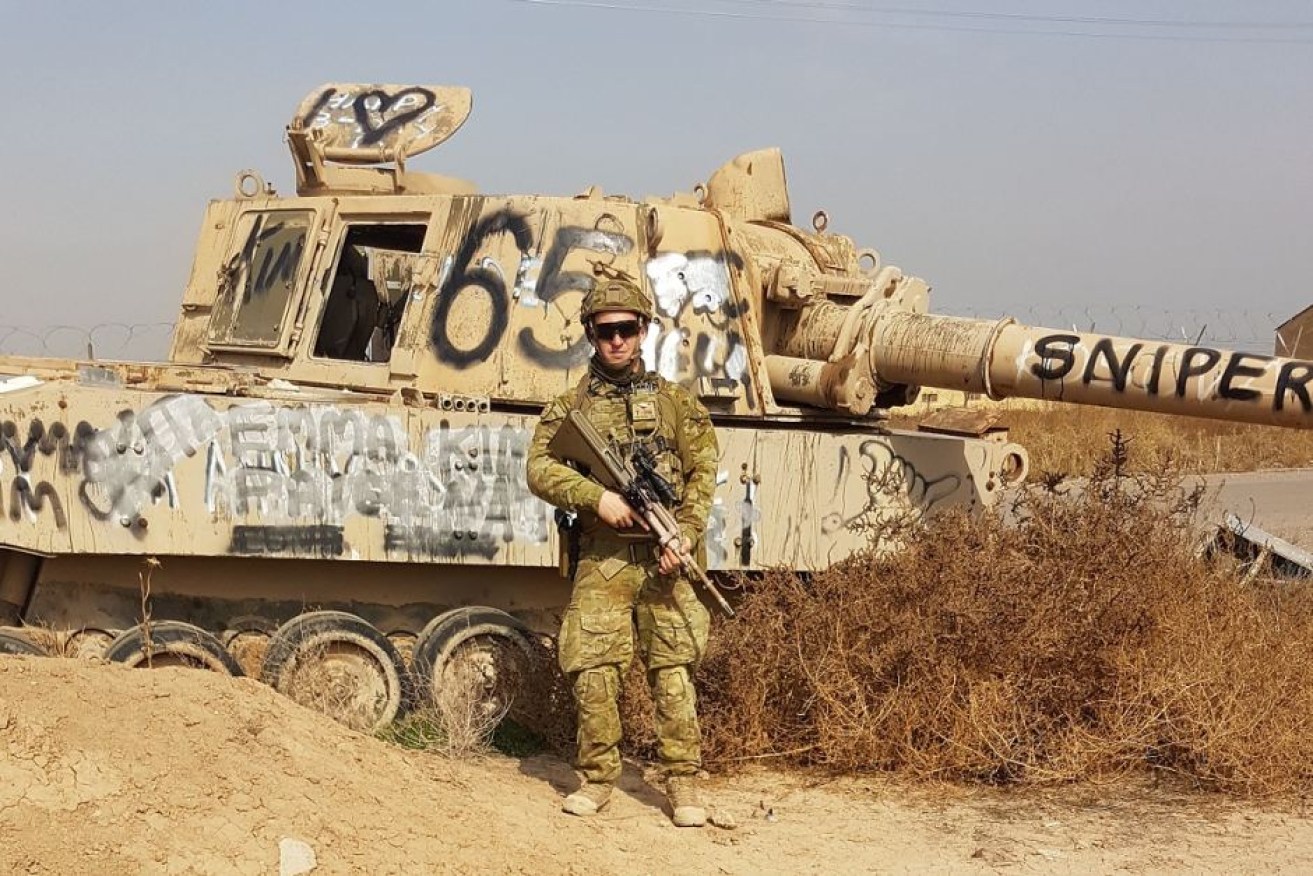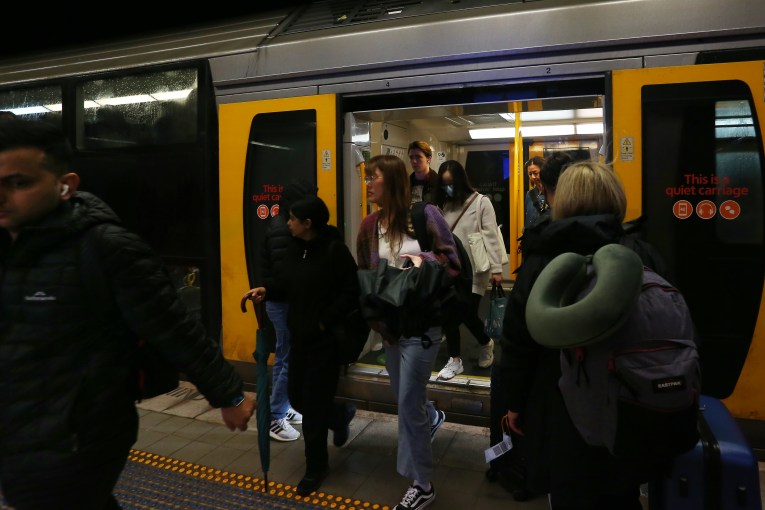‘They come in here broken’: The recovery centre putting soldiers back together again

Before being diagnosed with epilepsy, Brett Humphrey was training Iraqis to fight Islamic State. Photo: Brett Humphrey
Brett Humphrey is fit and able-bodied, but the 26-year-old can’t return to his old job.
The rifleman from the Royal Australian Regiment’s 5th battalion had been on deployment in Iraq last year training local soldiers to fight Islamic State when his life took a turn he never saw coming.
“On the way back [I] had a stopover in Dubai, was handing our gear back in, went to the mess for lunch, woke up 30 minutes later in the hospital,” he said.
“Got told I had a seizure, never had one before in my life.”
Doctors told Brett he had epilepsy, despite no family history of the condition.
“[I was] a little bit shocked. What was going to happen with my career and how I was going to move forward was pretty much what was at the forefront of my mind at that time,” he said.
Back in Australia, he suffered another seizure. This time behind the wheel, crashing his car on his way to a football game.

Brett Humphrey says he is managing his epilepsy by keeping it in perspective. Photo: ABC
Last September, he began rehabilitation at the Soldier Recovery Centre (SRC) inside Robertson Barracks near Darwin.
“It’s a holistic program which is designed around the members’ needs that are assigned here for their recovery and rehabilitation,” said Major Mark Elliott, the new Officer-in-Charge at the centre.
The centre provides an eight-week or rolling program for the wounded, injured and ill – complex cases which are too difficult to manage in their own unit.
The program also involves work outside of Robertson Barracks, with participants doing yoga and Pilates, and volunteering at the RSPCA and local schools.
“The ultimate goal is to get them back to work in the same job they were doing before,” Major Elliot said.
“If they can’t do that then obviously we would like to get them into an alternative role in the Army or even in the ADF.
“Ultimately if they can’t meet both those requirements then they would transition … out of the Army.”
Sadly, Mr Humphrey won’t be rejoining his mates at 5RAR.

The Soldier Recovery Centre is focused on recovery and rehabilitation. Photo: ABC
“We handle weapons, I can’t handle weapons having epilepsy,” he said.
“[I] could have a seizure, [it] could end up very badly for other people around me if we have live ammunition.”
Program ‘optimising mental health’
Mr Humphrey has been at the centre the longest and could be there for the remainder of the year while he works out his future.
However, his passion for WWII history and AFL history could see him transition to life outside the barracks.

Despite his condition, Mr Humphrey can do all of the exercises as part of the program. Photo: ABC
The program works closely with physiotherapists and deals with issues from muscle tears to mental health.
“So regardless if they’ve got a complex case or if it’s a mental health issue I treat all soldiers the same,” said physical training instructor Ty Dansie, who has served in the military for more than a decade.
“Obviously, I’ve had those different experiences overseas so they can relate to that and that’s what bonds us.”
Major Elliott said the Army now has much greater awareness of mental health issues.
“Our program tries to optimise mental health … but also at the same time we have better access now than we’ve ever had before actually on base with the mental health team that works here,” he said.
“The most satisfying part of it is seeing soldiers actually recovering and a tangible result coming out of the program here.”
Established in 2012, Darwin’s Soldier Recover Centre is seen as a leader among other centres in Townsville and Brisbane.
A special, smaller recovery unit was set up in Adelaide recently and is run by the team in Darwin.
“We have good activities that we do like going out and helping and volunteering. It just brings people together and gets them up and about, a bit happier and brighter,” Mr Humphrey said.
“Just the mindset of people. They come in, they’re broken, they’re probably upset, they’re depressed, but everybody gets around each other here.”
Mr Humphrey’s future is uncertain, but he is keeping things in perspective.
“There’s a lot of people that come through the SRC that have a lot more problems than I do and you just think: ‘well, my problem’s not as bad as those blokes’,” he said.

Major Mark Elliott started as the Officer in Charge of the SRC at the start of this year. Photo: ABC








